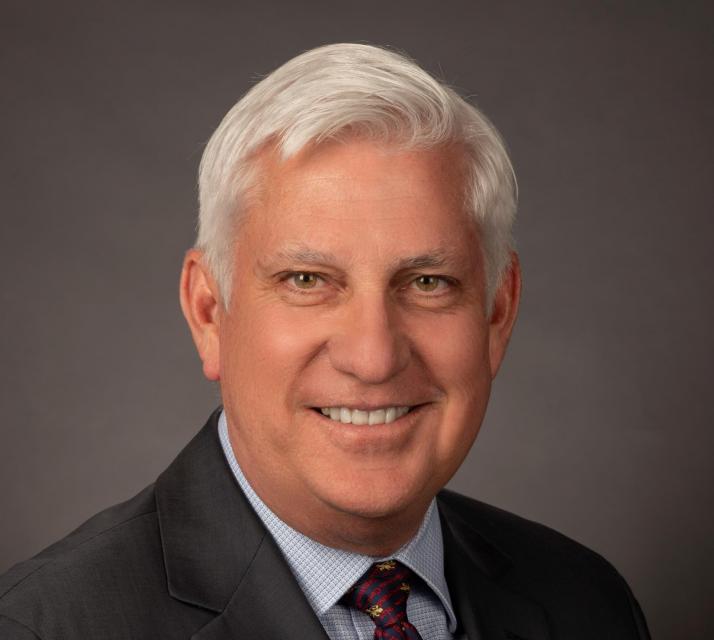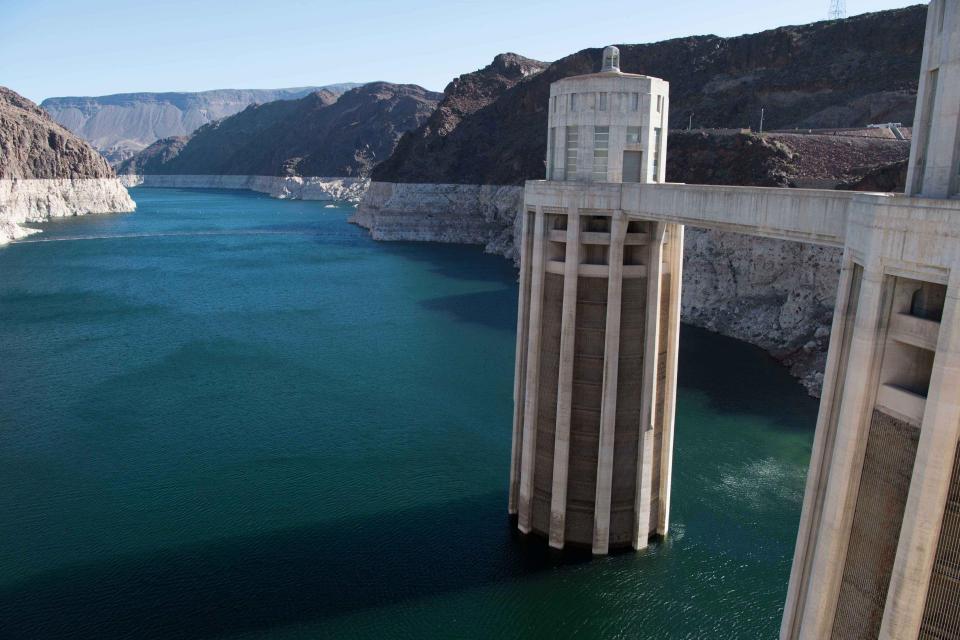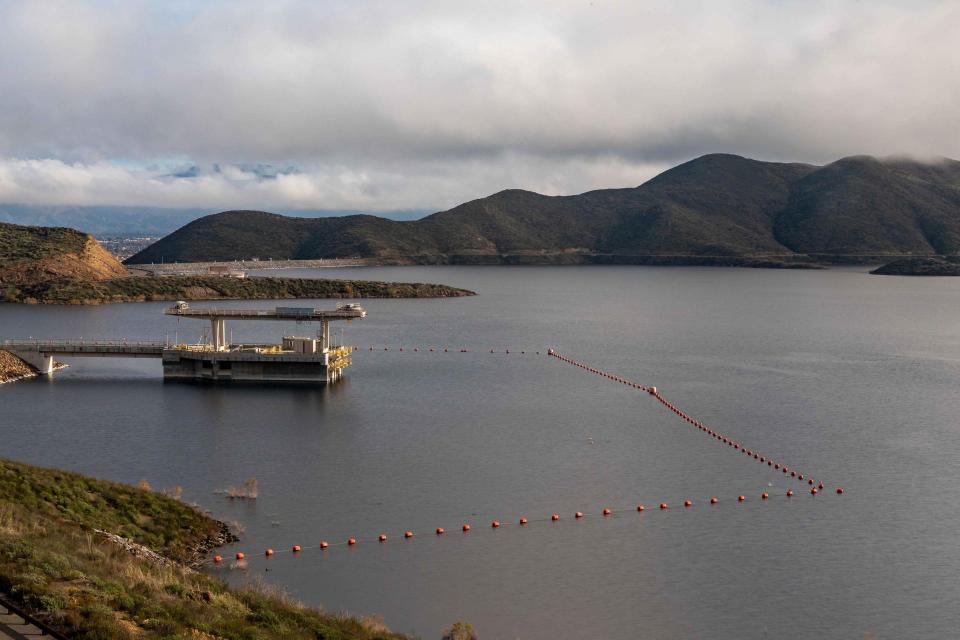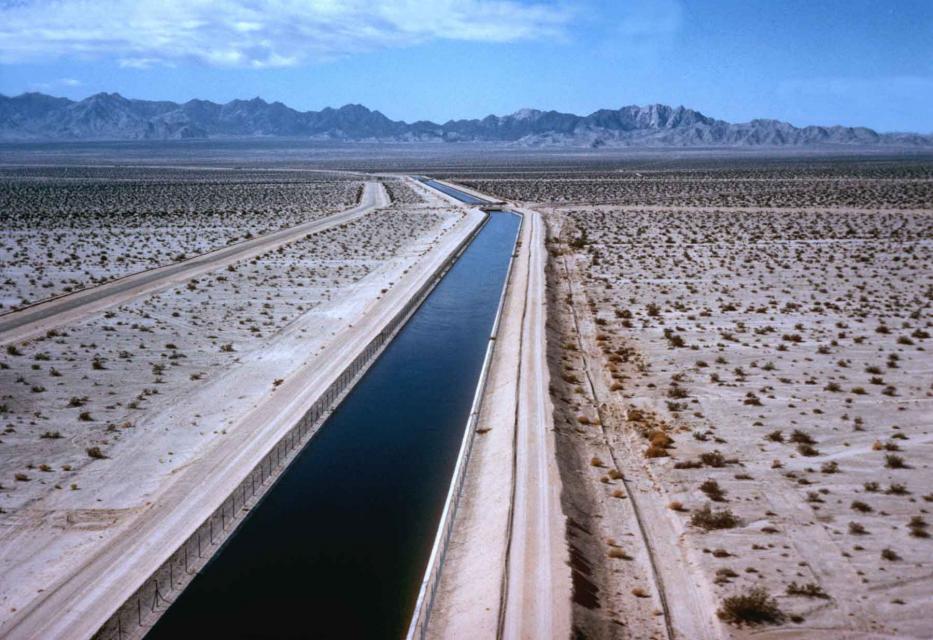MWD’s Jeff Kightlinger Reflects On Building Big Things, Essential Partnerships and His Hopes For the Delta
WESTERN WATER Q&A: Veteran Water Boss, Retiring After 25 Years With SoCal Water Giant, Discusses ‘Permanent’ Drought, Conservation Gains & the Struggling Colorado River
 When you oversee the largest
supplier of treated water in the United States, you tend to think
big.
When you oversee the largest
supplier of treated water in the United States, you tend to think
big.
Jeff Kightlinger, general manager of the Metropolitan Water District of Southern California for the last 15 years, has focused on diversifying his agency’s water supply and building security through investment. That means looking beyond MWD’s borders to ensure the reliable delivery of water to two-thirds of California’s population.
Kightlinger, 61, planned to retire at the end of 2020 but stayed on into 2021 to guide Metropolitan through the COVID-19 pandemic. An astute observer of California’s Byzantine water world, he exudes optimism amid a drying California climate and a tempestuous political landscape in which progress occurs at minimal increments. The past 15 years have been marked in part by an ambitious yet controversial proposal backed by Metropolitan to build twin tunnels (since scaled back to one) under the Sacramento-San Joaquin Delta to keep the water flowing to Southern California while protecting endangered fish species.
Meanwhile, Kightlinger has to deal with his agency’s other chief water source, the Colorado River, and the increasingly dire conditions there. Stakeholders, including Kightlinger’s successor, will soon convene in earnest to build a new set of river management guidelines for 2026 even as a declared shortage seems all but assured.
“The reality of the West is that we are in a permanent drought cycle. We have to build into our thinking that this is not a dry period, this is our reality.”
~Jeff Kightlinger, MWD General Manager
Kightlinger joined Metropolitan in 1995, serving as deputy general counsel and assistant general counsel before becoming general counsel in 2002. He took the reins as general manager in 2006. Working for Metropolitan has embodied Kightlinger’s career for such a long time, his decision to step away was bracing in some respects.
“All of a sudden it’s real,” he said. “They’ve interviewed people, they have a short list, and I’ll be replaced rather shortly. It’s one thing when it’s off in the future. Now, it’s like, gosh, this is real. It is a little unsettling.”
In an interview with Western Water, Kightlinger shed light on how his agency is poised to handle drought and why he believes practicality and necessity will pave the way for the completion of a Delta alternative conveyance facility for the State Water Project.
WW: What’s been the biggest change in California water since you became general manager?
 KIGHTLINGER: I think probably the
biggest change has been sort of a transition into kind of a
permanent drought cycle. Frankly, my 15 years as GM have
basically been drought with a couple of wet years sprinkled in
here. The reality of the West is that we are in a permanent
drought cycle. We have to build into our thinking that this is
not a dry period, this is our reality.
KIGHTLINGER: I think probably the
biggest change has been sort of a transition into kind of a
permanent drought cycle. Frankly, my 15 years as GM have
basically been drought with a couple of wet years sprinkled in
here. The reality of the West is that we are in a permanent
drought cycle. We have to build into our thinking that this is
not a dry period, this is our reality.
WW: General managers are typically engineers. Has your legal background influenced your approach to managing the district?
KIGHTLINGER: I think so. You’re seeing more GMs these days with either a legal background or a chief financial officer background. That’s a reflection of the challenges we face now. We know how to engineer and design things. It’s just gotten incredibly hard to actually get the political process to support building things. And it’s also become very difficult with financing now that the federal and state governments have gotten out of the business of paying for infrastructure and they never seem to have any money. You … are seeing lawyers and CFOs because the big challenges are getting stuff permitted and authorized to be built. Getting stuff financed to be built has actually become more challenging than designing how to build it.
Jeff Kightlinger
- Age: 61
- Education: Bachelor’s degree, University of California, Berkeley. Juris doctorate, Santa Clara University School of Law.
- Current job: General manager, Metropolitan Water District of Southern California.
- Previous jobs: Deputy general counsel, assistant general counsel, Metropolitan Water District of Southern California. Private practice work representing municipalities, redevelopment agencies and special districts.
- Fun Fact: Kightlinger’s Twitter handle is @8thGenCA, a nod to his family lineage on his father’s side, which extends back to the Machado family whose members lived on a Spanish land grant dating to the late 1700s. The hacienda was located where Culver City is today.
WW: Metropolitan has long pursued projects to solidify its water supply portfolio. Will that trend continue?
 KIGHTLINGER: Absolutely. One thing
I’ve been proud of during my tenure is that we tried to step into
that gap that the state and federal government used to fill and
tried to fill it for Southern California as best we can. Diamond Valley
Lake was one. The
Inland Feeder, a billion-dollar pipeline, was another. We’ve
done big things – the biggest turf replacement program ever
undertaken, and we continue to do big things. Exciting on the
horizon … is what will be the largest
recycled water facility in the nation. A $3.5 billion project
in partnership with the L.A. County Sanitation District. One of
things I have focused on is that while Met’s big and we can do
big things, we have to have more partnerships.
KIGHTLINGER: Absolutely. One thing
I’ve been proud of during my tenure is that we tried to step into
that gap that the state and federal government used to fill and
tried to fill it for Southern California as best we can. Diamond Valley
Lake was one. The
Inland Feeder, a billion-dollar pipeline, was another. We’ve
done big things – the biggest turf replacement program ever
undertaken, and we continue to do big things. Exciting on the
horizon … is what will be the largest
recycled water facility in the nation. A $3.5 billion project
in partnership with the L.A. County Sanitation District. One of
things I have focused on is that while Met’s big and we can do
big things, we have to have more partnerships.
WW: What’s going to happen on the Colorado River as conditions worsen?
KIGHTLINGER: It’s going to be hard and there’s going to be pain. The reality of the Colorado River is that we are struggling. You start with the premise that it is over-allocated and oversubscribed. You have to make cutbacks just to get into balance. And our latest thinking seems to be that we’ve lost at least 10 percent of our supply due to climate change … and that’s not the bottom. … [The] Drought Contingency Plan (DCP, signed in 2019) was a Band-Aid. We put the bandage on, good for us, that was painful. We dealt with the emergency, now we’ve got five years to figure out, OK, what’s the roadmap to sustainability? It’s going to have to be a mixture of cuts that will have to be shared and then on top of that, we’re going to have to also get creative to find opportunities to help each other. That is where the Southern Nevada Water Authority comes into mind where they can invest major money in Southern California for recycled water and we can exchange Colorado River water back to them. That is the kind of partnerships we’re going to have to do on the river for the future.
WW: Native American tribes in the Colorado River Basin are asserting their long-standing water rights to the river. How will that affect existing users like MWD?
KIGHTLINGER: Clearly, the tribes have been left out in the mix and for the next iteration of guidelines on the river that will be adopted in 2026, the tribes have to be at the table and have to be a partner. They have to understand they cannot just grow into their entitlements willy-nilly. This is all something that has to be carefully planned and worked out with the existing users, and we have to make room for them at the table and room for them to use water. The DCP was a good first step on that. California doesn’t have the same tribal issues that some of the other states have. In the DCP process, the tribes were at the table in Arizona and were a partner. That is what will be needed for the 2026 guidelines.
WW: Los Angeles is well known for its reduced rate of water use even with population growth. What’s the next tier that’s reachable in the near future?
KIGHTLINGER: We’ve done a remarkable job in Southern California.
In 1990, Metropolitan sold 2.5 million acre-feet of water and we
had 14 million people. This year we’re going to sell 1.65 or so
million acre-feet and we have 19 million people.  We have grown 30-some percent and we’ve shrunk our
water use regardless by 35 percent. That’s all through efficiency
and it’s been very effective. Can we do more? We have picked most
of the low-hanging fruit. We have pretty much retrofitted every
toilet in Southern California and every shower head. Most of your
dishwashers and clothes washers are high efficiency. We are also
trying to get people to change their lifestyle, which is really
focused on the outdoors. We’ve made a lot of progress, but we can
do more.
We have grown 30-some percent and we’ve shrunk our
water use regardless by 35 percent. That’s all through efficiency
and it’s been very effective. Can we do more? We have picked most
of the low-hanging fruit. We have pretty much retrofitted every
toilet in Southern California and every shower head. Most of your
dishwashers and clothes washers are high efficiency. We are also
trying to get people to change their lifestyle, which is really
focused on the outdoors. We’ve made a lot of progress, but we can
do more.
The proposed Delta Tunnel is years away from being complete, assuming all goes according to plan. Will California ever solve the conundrum of protecting the Delta while ensuring reliable water supplies through the State Water Project?
KIGHTLINGER: The progress is very slow, there is no denying that, and it’s frustrating. But on the other hand, I do think there is reason for optimism. … If you look at our last three governors, Schwarzenegger employed a blue-ribbon committee to look at all the California water issues and the conclusion was that we need to enhance our conveyance. Gov. Brown picked it up and pushed forward with the twin tunnels project. Gov. Newsom said that was a little overly ambitious but agreed something needs to be done and supports a single tunnel project. … Having the elected leadership of our state, for the last 15 years, basically say we need to address this problem, tells me that eventually we’re going to get it done.
Reach Gary Pitzer: gpitzer@watereducation.org, Twitter: @GaryPitzer
Know someone else who wants to stay connected with water in the West? Encourage them to sign up for Western Water, and follow us on Facebook, Twitter, LinkedIn and Instagram.










